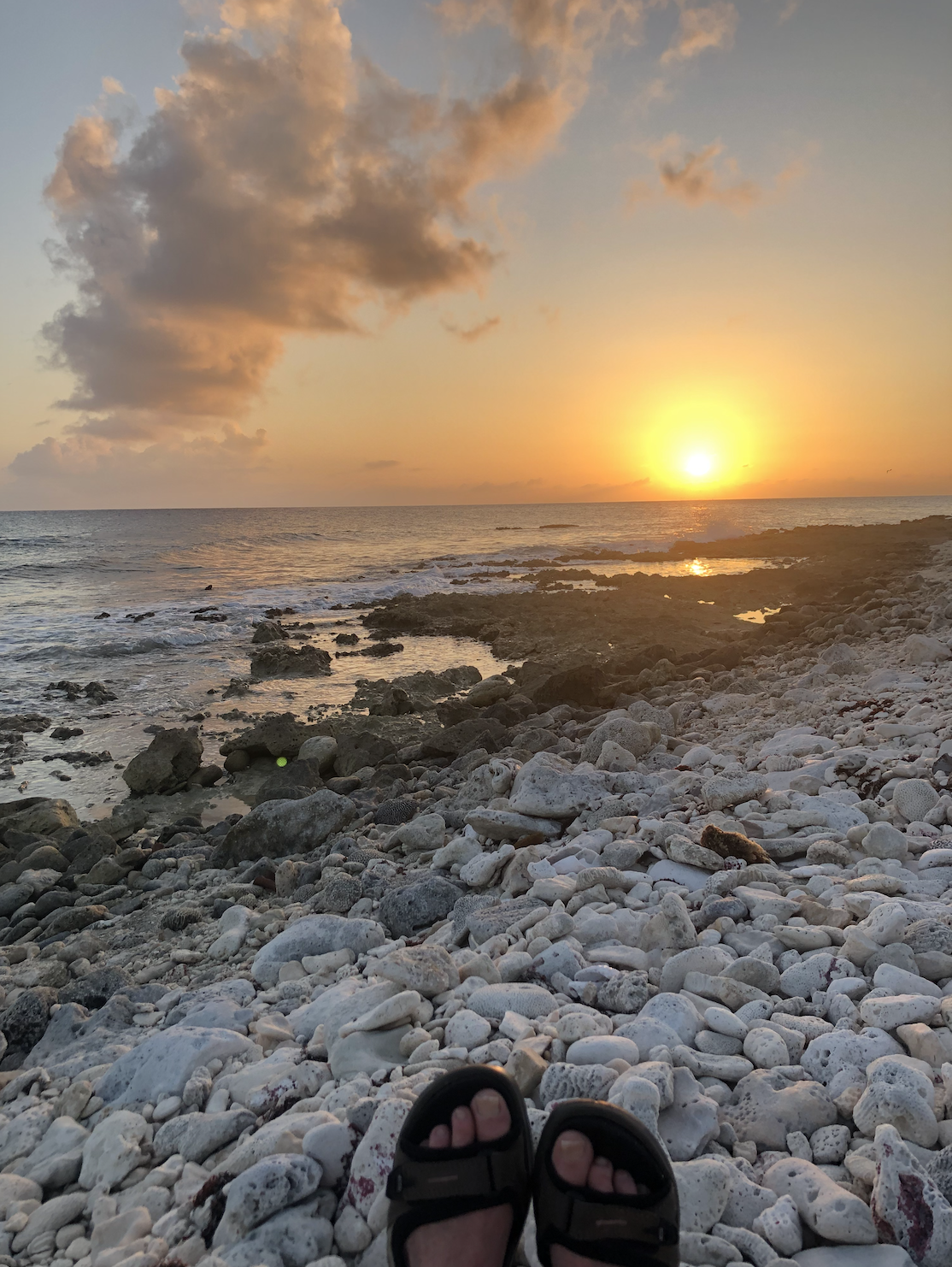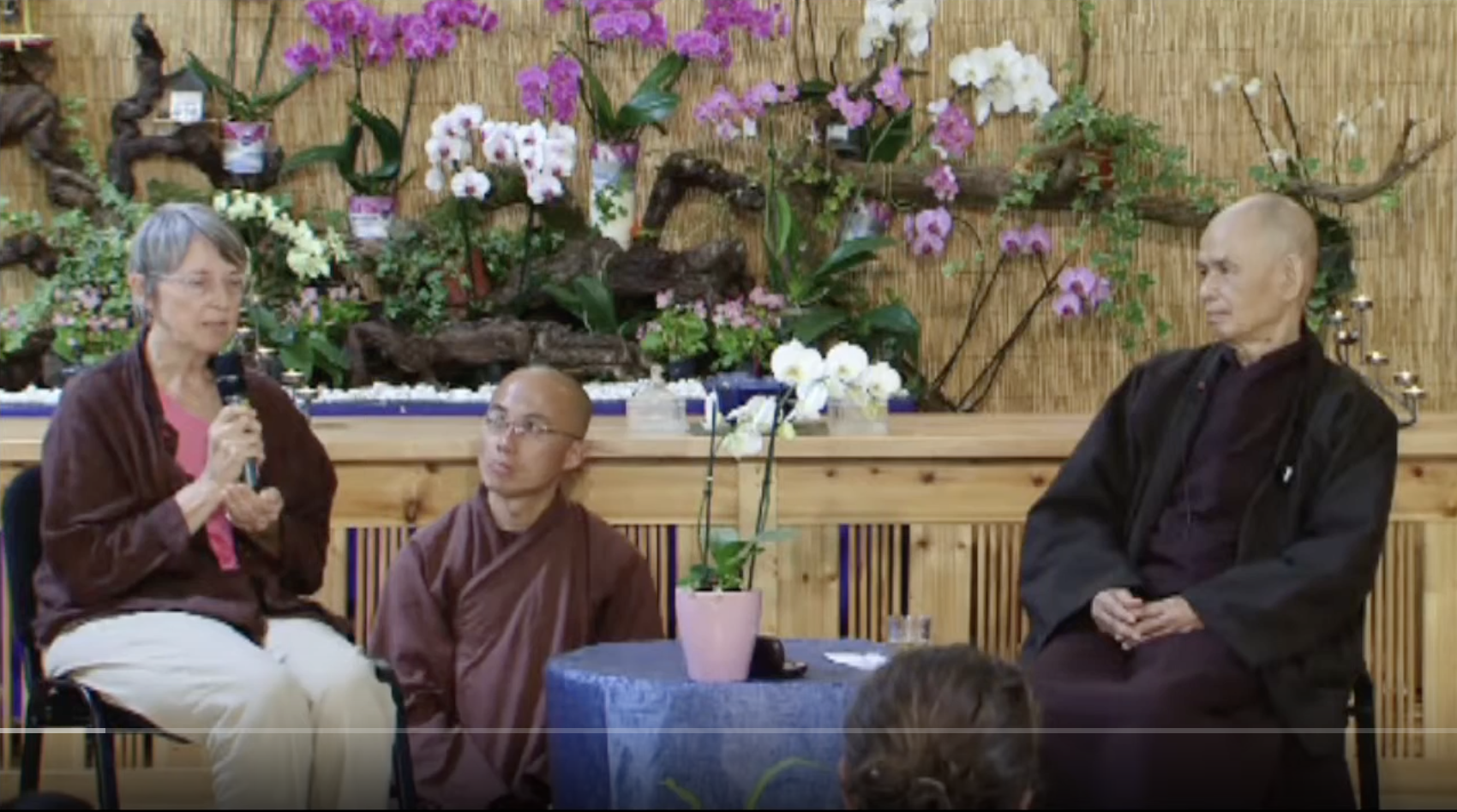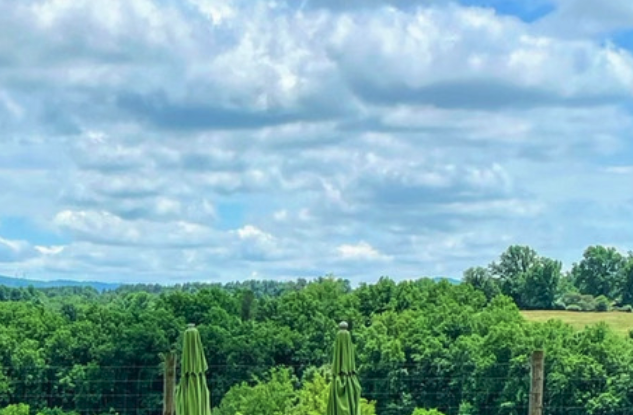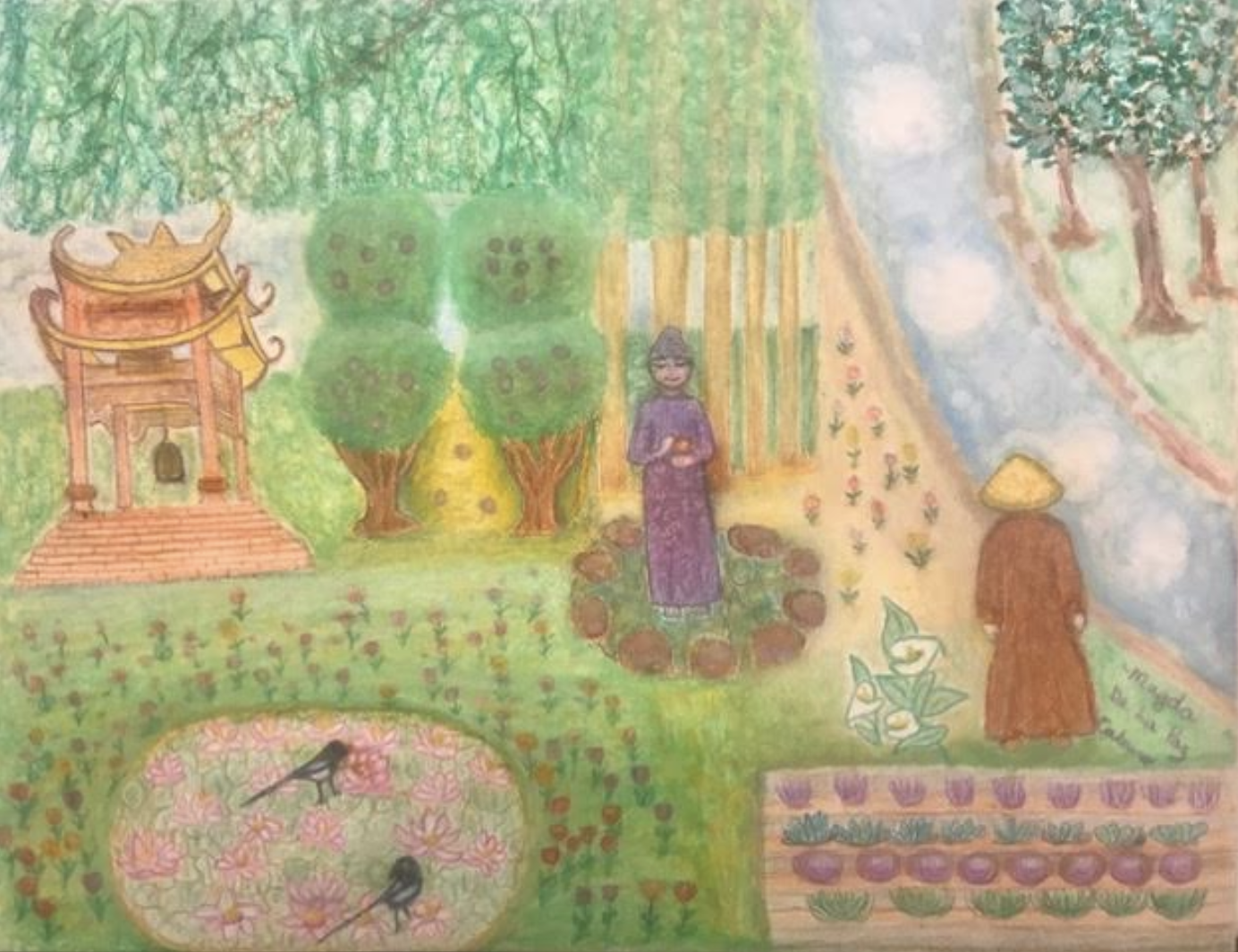This Monday at sangha Mary will facilitate. She shares:
Dear Thay, dear Sangha,
As I sat down to write, my mind went to summer 1978. I was volunteering on a cargo boat converted to a hospital ship, “L'île de Lumière/Island of Light”. Its mission was to assist Vietnamese ‘boat people’/refugees fleeing Viêt Nam. My eyes and heart opened wide that summer. I had never witnessed so much suffering.That summer was a turning point in my life.
Thich Nhat Hanh/Thay wrote the poem below, ‘Please call me by my true names’ in 1976 to help him process his feelings after receiving a letter about a 12 year old Vietnamese girl who was raped on an escaping boat by a Thai “pirate”. She then threw herself overboard to die.
Thich Nhat Hanh shares his thoughts here: Thay’s Poetry / Please Call Me by My True Names (song & poem) | Plum Village :
“When you first learn of something like that, you get angry at the pirate. You naturally take the side of the girl. As you look more deeply you will see it differently. If you take the side of the little girl, then it is easy. You only have to take a gun and shoot the pirate. But we can’t do that. In my meditation, I saw that if I had been born in the village of the pirate and raised in the same conditions as he was, I would now be the pirate. There is a great likelihood that I would become a pirate. I can’t condemn myself so easily. In my meditation, I saw that many babies are born along the Gulf of Siam, hundreds every day, and if we educators, social workers, politicians, and others do not do something about the situation, in twenty-five years a number of them will become sea pirates. That is certain. If you or I were born today in those fishing villages, we might become sea pirates in twenty-five years. If you take a gun and shoot the pirate, you shoot all of us, because all of us are to some extent responsible for this state of affairs.

























